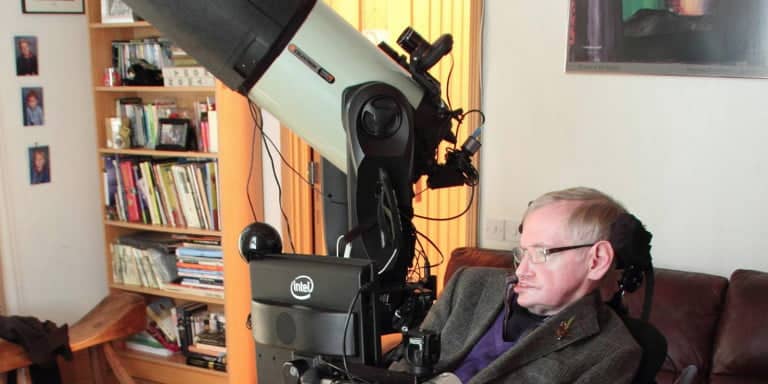
Stephen Hawking may have passed away, but his legacy of scientific discovery will live on, and his final paper has the potential to lay the groundwork for one of the most important scientific discoveries of the 21st century. The Sunday Times reports that the paper, entitled “A Smooth Exit from Eternal Inflation,” details a means by which scientists could discover a parallel universe.
The paper had its latest revisions approved on March 4 — 10 days before Hawking’s death. “A Smooth Exit from Eternal Inflation” is a mathematical paper that sets out to find proof of multiverse theory, which argues that there are many other universes existing alongside our own.
Thomas Hertog, who co-wrote the paper with Hawking, said that their goal was “to transform the idea of a multiverse into a testable scientific framework,” Business Insider reported. Hertog said that he submitted the latest version of the paper after discussing it with Hawking, in order to ensure he approved of everything.
The paper provides the mathematical calculations that a space probe would need to gather evidence regarding the existence of a parallel universe.
Hawking and Hertog’s research argues that evidence for a multiverse should be measurable via background radiation dating back to the beginning of the universe. The paper also speculates that this radiation should be detectable using a deep space probe equipped with the proper sensors.
The Times also noted that if the paper’s hypothesis pans out and researches do discover proof of parallel universes, the scientists behind the discovery would likely win a Nobel Prize. However, the reward cannot be awarded posthumously, so Hawking would not be eligible. It will likely take many years before such a discovery could be made. Unfortunately, this is the reason that Hawking was never awarded a Nobel Prize.
As a theoretical physicist, many of Hawking’s theories, while scientifically and mathematically sound, were difficult, if not impossible, to prove with current technology. The Nobel Prize committee only gives out its award once a theory has been proven.
Nobel Prizes aside, Hawking’s role as an ambassador for science and best-selling author ensures that his legacy will live on. His 1988 book, A Brief History of Time, introduced millions of readers to cosmology.
